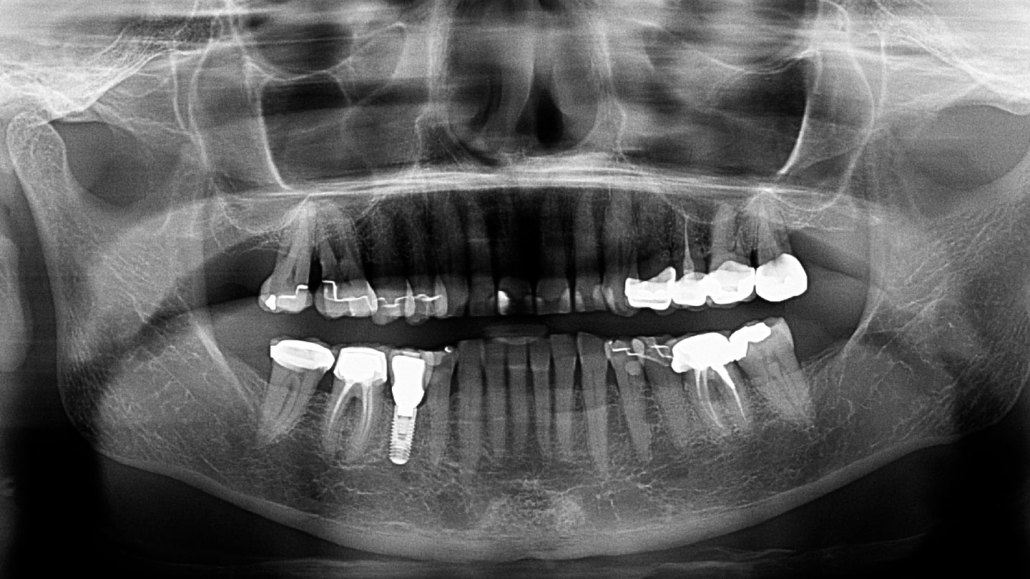False teeth could double as hearing aids
Jawbones transmit sound just as well as the bone that traditional hearing aids rely on

A screw anchors a fake tooth to a person’s lower jaw in this X-ray image. Such dental implants can transmit sound well and could be used as part of a novel hearing aid design.
BSIP/Collection Mix: Subjects/Getty Images Plus







